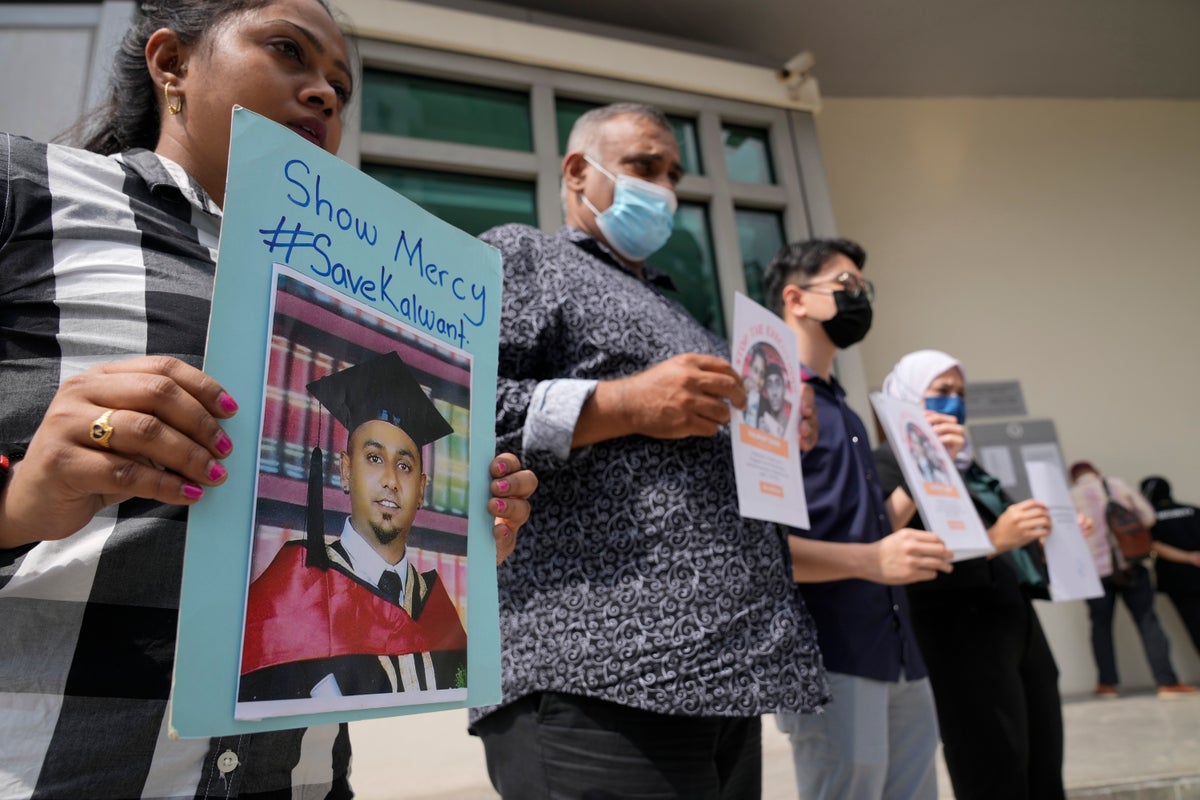
Two drug traffickers were hanged in Singapore on Thursday, bringing the number of executions this year in the city-state to four despite growing calls to abolish its death penalty.
Activists said the prison department handed the belongings and death certificates for Malaysian national Kalwant Singh and Singaporean Norasharee Gous to their families after their execution Thursday morning.
Amnesty International said Singapore is one of just four countries known to have executed people for drug-related offences in recent years, going against a global trend toward abolishing the death penalty.
“Singapore has once again executed people convicted of drug-related offenses in violation of international law, callously disregarding public outcry," said Emerlynne Gill, Amnesty International's deputy regional director for research.
“The death penalty is never the solution and we oppose it unconditionally. There is no evidence that it acts as a unique deterrent to crime,” Gill said in a statement.
Kalwant, who was convicted in 2016 of bringing heroin into Singapore, was the second Malaysian to be executed in less than three months. In late April, the hanging of another Malaysian sparked an international outcry because he was believed to be mentally disabled.
Kalwant filed a last-minute appeal on the eve of his execution on grounds that he was a mere courier and that he had cooperated with police, but it was rejected by Singapore's top court, activists said.
Critics say that Singapore's death penalty has mostly snared low-level mules and done little to stop drug traffickers and organized syndicates. But Singapore's government defends it as necessary to protect its citizens.
“We urge the Singaporean authorities to immediately stop this latest wave of hangings and impose a moratorium on executions as a step towards ending this shameful and inhuman punishment," Amnesty said.
Four others drug traffickers, including two more Malaysians, were scheduled to be hanged earlier but their executions were delayed pending legal challenges.







